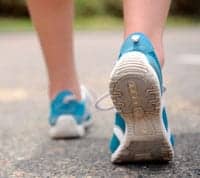Learning and executing a new motor skill can be enhanced if you can get additional memory processing during sleep, according to new research published in JNeurosci.
Researchers at Northwestern University compared how well participants performed a challenging motor task with and without the extra processing during sleep. The participants played a computer game using a myoelectric computer interface, which enabled them to move a cursor by activating specific arm muscles. Each command to move the cursor in a particular direction was paired with a unique sound; after practicing, the participants played the game blindfolded and moved the cursor based on the sound cue alone.
After completing a test round, the participants took a 90-minute nap. The researchers played half of the sound cues during the nap, reactivating the motor memories associated with each cue. After the nap, the participants performed the motions cued during sleep better than the uncued ones: it took less time to move the cursor, the cursor traveled a more direct route, and fewer superfluous muscles were activated.
These results suggest that the performance of new motor skills can be improved by reactivating memories during sleep.
This approach could be a way to enhance rehabilitation for stroke or other neurological disorders, the researchers note.
[Source(s): Society for Neuroscience, MedicalXpress]





